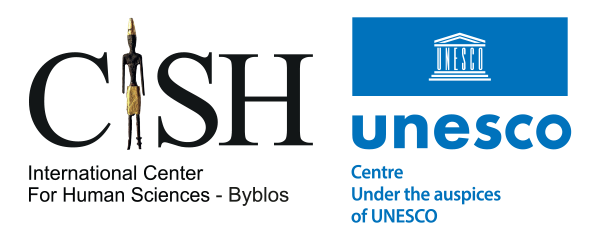Under the patronage and in the presence of His Excellency Culture Minister Esq. Raymond Araygi, and following the invitation of the International Center for Human Sciences – Byblos and the Arab Philosophy Union, an international philosophical colloquium was held on the 10th and 11th of December 2014 under the title: “Where does the Arab thought stand from Philosophy and Religion?”
The colloquium was attended by twenty thinkers from Algeria, Tunisia, Morocco, Iraq, France, Italy and Lebanon, who work in the philosophy field. The attendees participated in five working sessions and their comments revolved around the following topics:
– Philosophy and Religion/ the Meandering Path
– Philosophy, Democracy and Religion
– Philosophy, Religion and Dialogue
– Hermeneutics and Religion
– Religion and Public Domain
– Humanism in Religion
– Truth and Sacred/ in Religious Violence.
During the opening session, three speeches were delivered respectively by Dr. Walid Khoury representing the Arab Philosophy Union, Dr. Adonis Akra, Director of the International Center for Human Sciences, and His Excellency Culture Minister Esq. Raymond Araygi whom the colloquium was held under his patronage.
As the purpose behind this colloquium was to establish a results-calendar for a philosophical examination of religion and since it shed the light on the Arab thought in this domain, principles and visions were concluded and could be summarized in the following:
1- The two institutes which organized the colloquium picked the problematic of religious philosophy in an adequate time, since the approach of this matter is one of the main keys to understand the tragic deviation phenomenon of some Islamic and non-Islamic movements towards terrorism.
2- The first condition that we –Arab people– need to meet in order to achieve religious philosophy, resides in having a philosophical activity, or even a philosophical production similar to the one that occurred in the West following the revision of the Age of Enlightenment’s philosophy.
3- Encouraging the establishment of a “Philosophical Studies” department in all Arab universities, specialized in teaching: Religions History, Religious Philosophy, Religious Psychology, Religious Anthropology, the region’s religions through their initial sources, Religious Arts…
4- Selecting serious and in-depth publications on religious philosophy to translate them from and into Arabic. In this domain, it is necessary to coordinate with some of the foreign research centers and organizations specialized in religious philosophy, as both parties would benefit, each in its native language, in the religious philosophy field.
5- The Arab Philosophy Union, in collaboration with the International Center for Human Sciences – Byblos, urged the pursuit of the colloquium’s theme by conducting conferences, researches and empirical activities, and through any institution that shares the same goals with this colloquium.
6- Recommending the publication of the colloquium’s works, including a book that can be considered as a constituent for future suggested activities regarding the Arab thought’s position and its role in religious philosophy.
